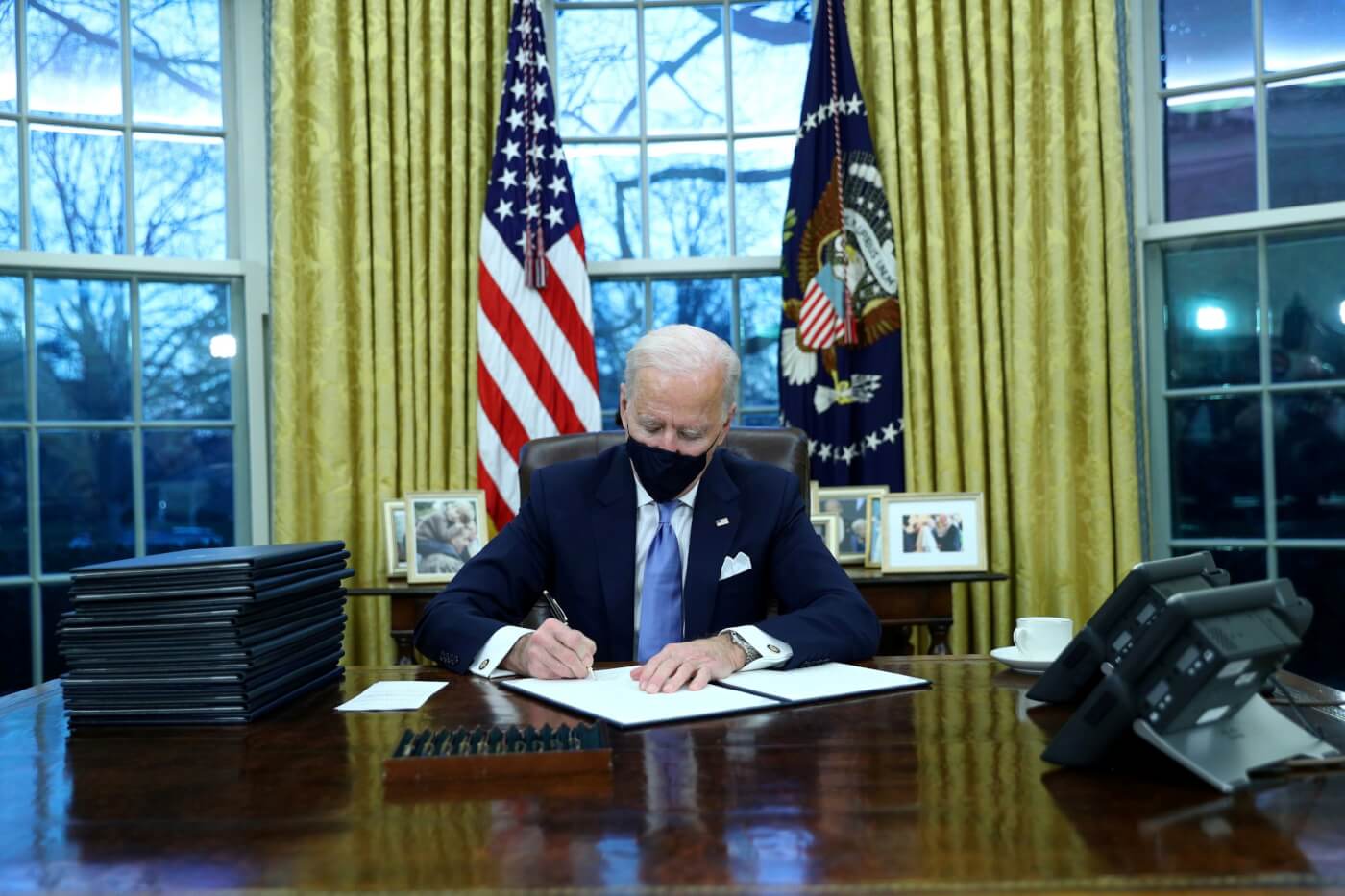As the Biden administration takes up its position in the White House, the new president has passed 17 Executive Orders; quickly undoing some of Donald Trump’s most contentious policies and potentially advancing the position of US human rights in the process.
In one of President Biden’s first Executive Orders, he imposed a total ban on workplace discrimination based on a person’s sexual orientation or gender identity – a stark change to the precedent set by the Trump administration, which had previously argued that gay and transgender employees were not covered by Title VII of the Civil Rights Act. This action has been well received, with Alphonso David, President of the NGO Human Rights Campaign, stating that:
“Biden’s Executive Order is the most substantive, wide-ranging executive order concerning sexual orientation and gender identity ever issued by a United States president.”
Multiple Executive Orders were signed, that effectively fortified the rights of the United States’ undocumented immigrant population – a sector of American society that has frequently come under attack during recent years.
Trump’s efforts to ramp up immigration enforcement have been reversed significantly, with the new administration reverting back to Obama-era policy; only undocumented foreign-nationals who pose a threat to national security, those convicted of serious crimes, and recent border crossers are at risk of deportation.
Biden has also signed an Executive Order which ensures that Deferred Action for Childhood Arrivals (DACA) policy will remain in place. DACA’s removal has remained an objective of the Trump administration throughout his presidency and allows certain undocumented immigrants, brought to the country as children, to receive a renewable two-year period of protection from deportation. Almost 700,000 young immigrants are beneficiaries of the initiative, with Biden’s new immigration proposals aiming to offer them a three-year path to citizenship.
President Biden continued to protect the rights of undocumented immigrants in the US, rescinding Trump’s attempt to omit them from census counts. These exclusions previously undermined the political power of the immigrant population, with the majority of the foreign-born population residing in Democrat-run cities.
Construction of the border wall, one of Trump’s most significant campaign promises, will also come to an end, with President Biden stating that:
“there will not be another foot of wall constructed on my administration.”
Biden’s team announced extensive changes to US immigration policy, saying the new administration will:
“set civil immigration enforcement policies that best protect the American people and are in line with our values and priorities.”
An Executive Order ending the “travel ban”, one of Trump’s trademark immigration policies, was also signed. The ban, which prevented foreign nationals from 7 primarily Muslim countries from obtaining visas and entering the US, was condemned for its role “keeping families apart and even stymieing refugee resettlement.” Biden has previously described the ban as:
“the opening barrage in what has been nearly four years of constant pressure, insults and attacks”
President Biden also introduced an Executive Order which extends temporary protection from deportation for Liberians under the Deferred Enforced Departure programme until 30 June 2022. The destructive civil war in Liberia forced many citizens to flee the country with around 4,000 Liberians currently still living in the US as the repercussions of the conflict are still being felt today.
President Biden’s flurry of immediate Executive Orders following his inauguration highlighted his and the new US Government’s commitment to the promotion of human rights, both nationally and internationally. The world will wait to see how this new administration follows up on these encouraging steps forward.

